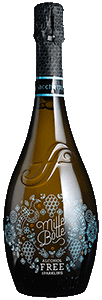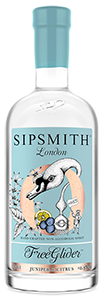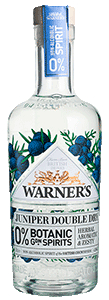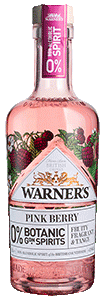Filter by
Filter by
Sort by:
Results Per Page:
1
Page 1 of 1
Italy
Chardonnay-based blend£6.99 per bottleUnited Kingdom
£20.00 per bottle- £17.99 per bottle
- £18.00 per bottle
Spain
Tempranillo-based blend£14.99 per bottleFrance
Chardonnay-based blend£10.99 per bottleSpain
Macabeo-based blend£5.99 per bottle- £14.99 per bottle
Italy
Glera£12.99 per bottle- from £2.20 per bottle
Germany
White blend£8.49 per bottleSAVE £1.50United Kingdom
from £2.60 per bottle
- Showing (1 to 12 of 12)
1
Page 1 of 1
What is alcohol-free and low alcohol wine?
It’s easy to get confused about the terms used to describe lower alcohol wines. But in fact there are pretty clear government guidelines as to what these terms mean.
- Non-alcoholic – this term is sometimes mistakenly used to refer to wines and beers with no alcohol. However, according to Government guidelines, it should really only be used to describe soft drinks like orange juice or lime and soda.
- Alcohol-free – an alcohol-free drink may contain up to 0.05% alcohol. The reason it isn’t set at zero is that it is very difficult to completely remove alcohol from wine or beer. However, at 0.05% you would have to drink 100 pints to consume the equivalent of one pint of 5% lager.
- Low alcohol – a drink labelled low alcohol must contain no more than 1.2% alcohol. For context, four pints at 1.2% would be the equivalent of one pint of 5% lager. A good option if you’re looking to moderate your alcohol intake.
- "No and Low" alcohol – we often use the term ‘no and low-alcohol’ to refer to both alcohol-free and low alcohol wines.
What are the most popular styles?
At Laithwaites, we have low-alcohol and alcohol-free wines in all the most popular styles – including reds, whites, rosé and sparkling alcohol-free wines.
You might notice that our range is quite small compared to the huge variety of alcoholic wines. This is because we will only sell alcohol-free wines that meet our buyers’ high standards – and there are very few that do!
Check the list above to discover alcohol-free Cava, alcohol-free Prosecco (AKA Nosecco), and alcohol-free reds, whites and rosés.
Look out for bottles from no-and low-alcohol specialists Wenesday’s Domaine. Their alcohol-free red and white wines are made in the usual way then gently de-alcoholised. They then add a handful of natural ingredients to just lift the body, flavour, aroma and length.
Oddbird is another specialist in alcohol-free wine – using a revolutionary technique to remove the alcohol with minimal effect on flavour. They are well worth checking out.
Popular grape varieties used in alcohol-free wines
There’s really no limit on what grapes can be used to make an alcohol free wine – but some do work better than others.
Wednesday’s Domaine Vignette, for example, is an alcohol-free red wine made mostly with Tempranillo, giving it plenty of soft berry fruit. A splash of Petit Verdot (one of the rarer Bordeaux varieties) adds extra depth and tannin – giving it a good texture.
Cabernet Sauvignon or Shiraz would also work well for reds.
Domaine Piquant, from the same producer, is an alcohol-free white made from Airén – a popular Spanish variety that makes zingy whites with good acidity. This gives you an alcohol-free white with lovely freshness – perfect served well chilled.
Sauvignon Blanc is another good option for alcohol-free whites, as its distinctive flavour profile will still shine through after the alcohol is removed.
For alcohol-free sparkling wines, the same grapes are used as for the originals. For example, alcohol-free Prosecco is made from Glera grapes. Alcohol-free sparkling are great choices and often difficult to tell apart from their alcoholic versions.
When can I expect my wine delivery?
The day of your delivery will depend on which option you’ve chosen at checkout.
- For a standard delivery, we will deliver your order in three to five working days. Delivery to the Scottish Highlands, some other areas of Scotland, Northern Ireland and offshore islands can take an extra few days.
- Usual delivery times are between 07.00 and 21.00.
- You can select Next-day or Named-day delivery at checkout – but do bear in mind we don’t deliver on Sundays or Bank Holidays.
For the best experience we recommend you subscribe to our Unlimited service. A one-off payment of £29.99 entitles you to free delivery for a year – including free Next-day delivery. There’s no minimum order – you’ll get free delivery even on a single bottle. And you can get delivery to multiple addresses, so it’s perfect for gifting!
Do you have a money-back guarantee?
We want you to be entirely happy with your chosen wine, so we offer an unbeatable money-back guarantee on every single bottle – even wines you buy on sale.
No quibbles. No questions. Just your 100% satisfaction.
If you aren't happy for any reason, get in touch and we’ll arrange to collect your bottle within 48 hours.














